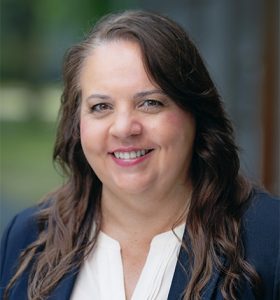
Musqueam Elder Larry Grant welcomes Indigenous students who regularly gather in Sty-Wet-Tan Great Hall over lunch to learn about campus resources and opportunities.
UBC is welcoming another cohort of Indigenous students into its campus community during annual Indigenous Student Orientation programming at UBC Vancouver.
Each year, the First Nations House of Learning (FNHL) organizes orientation events that go beyond providing a tailored introduction to university life. FNHL allows a space for First Nations (status or non-status), Métis and Inuit students to make connections and help them get acquainted with the comprehensive services available to them.
“Oftentimes, these students are separated from their Indigenous communities and support networks for the first time. They are responding to new and unique challenges during this important transition into post-secondary life,” said Joely Viveiros, acting director, First Nations House of Learning, who is Gitxsan from the community of Gitwangak.
Indigenous Student Orientation activities are hosted in the First Nations Longhouse and in the šxʷta:təχʷəm student space (formerly known as the Indigenous Student Collegium), a name gifted from Musqueam that means home away from home.
The Longhouse is a unique cultural and social space on campus that symbolizes an institutional commitment to the principles of respect, reciprocity and relationship-building between the university and Indigenous communities.
“The Longhouse is an intentional space for Indigenous students to forge meaningful connections in those first few days at UBC and throughout the year,” Viveiros continued. “These networks are vital to create a sense of belonging that extends beyond the classroom, which we know is an important indicator for student success.”A new home at UBC

Students gathering for a barbecue during FNHL’s Weeks of Welcome, a series of welcome and orientation events hosted at the Longhouse.
This year’s Indigenous Student Orientation programming included a beading circle social, medicine bundle making, resource fairs, as well as many opportunities for Indigenous students to connect over food.
“šxʷta:təχʷəm peer advisors are empowered to design many of the activities included in Indigenous Student Orientation programming,” said Tanya Boult, Indigenous Collegium coordinator. “This allows Indigenous student leaders to holistically determine how their new peers will be welcomed into our supportive and enriching community.”
Ava Siefke is a third-year Métis student from Langley. Since her introduction to the Longhouse, Siefke has taken on leadership roles there while studying, including planning and facilitating Indigenous Student Orientation events.
“Transitioning to UBC from a small high school was a bit of a daunting experience. I’m so thankful to have found a home in the Longhouse, and to have contributed to community-building programming that welcomes other students into this special place,” she said.
“I often encounter many other Indigenous students who feel unsure about taking up space or using the resources available to them, like I once was. Understand that when you come here, you are not just joining your peers—you are welcomed into a family that honours who you are and the unique perspective you bring.”
A special feature this year
The First Nations House of Learning is also always on the lookout for unique ways to collaborate with other UBC departments to enhance its programming.
An exciting new feature this year comes through coordination with the Come Toward The Fire (ʔəm̓i ce:p xʷiwəl) festival and the Chan Centre for the Performing Arts. The free, on-campus festival occurred during the Indigenous Student Orientation period and showcased a diverse range of Indigenous talent.
Through this special collaboration, Fawn Wood, one of Cree country’s most celebrated voices and a Juno award-winner, held a virtual meet-and-greet with Indigenous students at the Longhouse.
Between songs, Wood shared insights on how her experiences inform her music and her passion in Indigenous language revitalization.
“This kind of intentional programming and collaboration is illustrative of UBC’s commitment to creating spaces where Indigenous students’ distinct identities are not only welcomed, but celebrated,” Viveiros concludes.
“The start of every school year brings Indigenous Student Orientation, which marks the beginning of many transformative journeys for many of UBC’s Indigenous students, who are fortunate to walk amongst supportive community members every step of the way.”
This article was originally published by Michaela Kelly, UBC Media Relations and is reprinted with permission.

